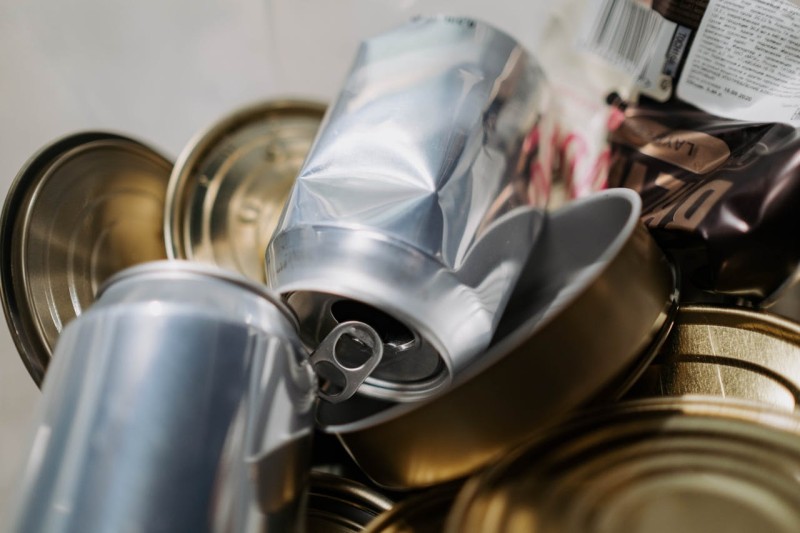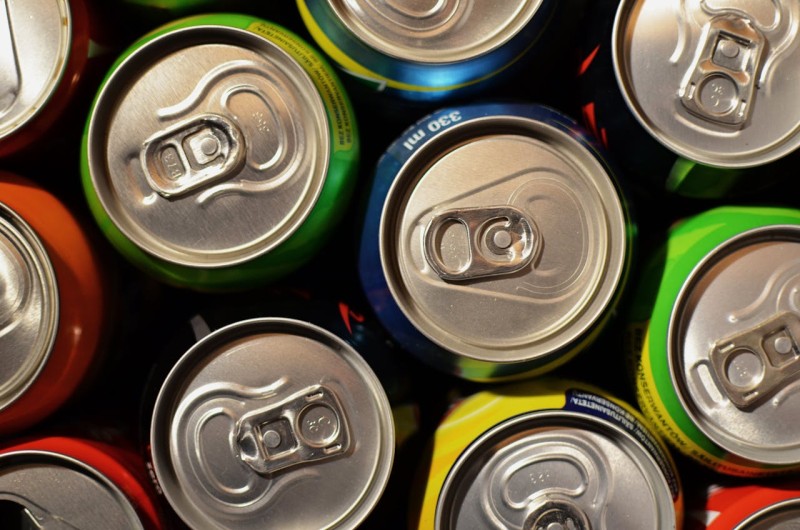later post | index | earlier post
How aluminium contributes to a circular recycling economy
Tuesday, 17 December 2024

Many of the food and drink products we buy are packaged in cans made from either aluminium or steel. Both materials can be recycled after we have finished with them to make either new cans or other products.
In this article we are focusing on aluminium. This is because aluminium cans are one of the most cost-effective items to recycle, due to its value and its high volume. We also look at the economic effect of reduced use of aluminium cans, and the benefits of recycling aluminium.
What is circular economy recycling?
The circular economy is a model for how the economic system could operate. It focuses on ways to eliminate waste and greenhouse gas emissions from industrial and economic activity, and circulating products and materials so that they are reused and do not end up as waste. Any biodegradable materials that cannot be reused should be put back into the economy and the earth as compost. The circular economy works best when all raw material is designed with reuse, recycling or biodegradability in mind.
Aluminium can recycling is one of the prime examples of good circular economy recycling.
Aluminium can recycling: the process and the benefits
Scraps left over from the aluminium production process can be melted down and used again and again. 95% less energy is used manufacturing cans from recycled aluminium than from raw material. This way of using waste as a resource means that around 75% of all the aluminium ever made is still in circulation.
Aluminium forms about 8% of the earth’s crust and is mined and extracted from bauxite, which contains the compound alumina. Four tonnes of bauxite will contain around two tonnes of alumina, which can provide around a tonne of valuable aluminium. So as one of the most abundant metals found naturally within the earth, aluminium is a great example of saving the Earth’s natural resources. It makes a great candidate for recycling for a number of reasons:
- It’s used all over the world, so there is a constant supply of recyclable material
- Anything made of aluminium can be recycled repeatedly – not only cans, but aluminium foil, food trays, window frames, and automotive components
- The environmental savings are substantial: aluminium can recycling generates only 5% of the greenhouse gas emissions used to produce cans from new
- The environmental impacts can be huge: over 9,000kg of CO2 equivalents are saved by recycling 1,000 kg of aluminium cans compared to sending them to landfill
Aluminium can recycling is quick too. Reused and repaired cans might be back on supermarket shelves containing new products in just two months.

The benefits of recycling aluminium are substantial. It’s estimated that the environmental effect of reduced use of aluminium cans leads to the following reductions:
- 86% fall in air pollution
- 40% fall in water use
- 76% fall in water pollution
Reduced aluminium can use and its benefits
Around 70% of all aluminium cans are recycled globally, and every minute an average of 113,200 aluminium cans are recycled. In the UK, around 5.9 billion aluminium drinks cans are recycled each year. However, if an aluminium can goes to landfill, it will stay there for 500 years before it oxidises, so it’s more than worth recycling.
How aluminium can recycling can benefit the economy and the environment
The process of recycling metals stops the need to extract non-renewable metal ores through mining. As there is only a finite number of ore on Earth (which is often found in unspoiled landscapes), not having to dig for it is good for the earth both in terms of resources and aesthetics.
Using secondary raw materials through aluminium recycling minimises the use of natural resources when making metal compounds such as iron ore (to make steel) or alumina and bauxite (to create aluminium).
The UK has a wealth of scrap metal. This means that the transportation and pollution concerns arising from long-distance boat and rail travel are also reduced by recycling.
Using recycled metals for smelting new raw materials can also massively help to reduce greenhouse gas emissions in production methods. EU data suggests that by using recycled materials, CO2 emissions are currently being slashed by around 200 million tonnes each year.
Help to eliminate waste by recycling with ASM
Secure the best price your for scrap aluminium by contacting ASM Metal Recycling today. We use the latest digital scales to weigh your metals with absolute accuracy, guaranteeing you the right price.
later post | index | earlier post
Recent posts
- What is commercial waste?
- What are different metals used for?
- What to do with radioactive scrap metal
- How does metal recycling benefit the economy and the environment?
- 5 common metals that can be recycled
- How does metal recycling work?
- How to Sort Metal for Scrap
- How to classify the different types of waste your business produces
- What is WEEE waste?
- Can iron be recycled in the UK?
- What has the most copper in it to scrap?
- How to better understand scrap metal pricing
- Is there a link between copper and brass prices?
- How to make money from cable scrap
- How many different types of copper are there?